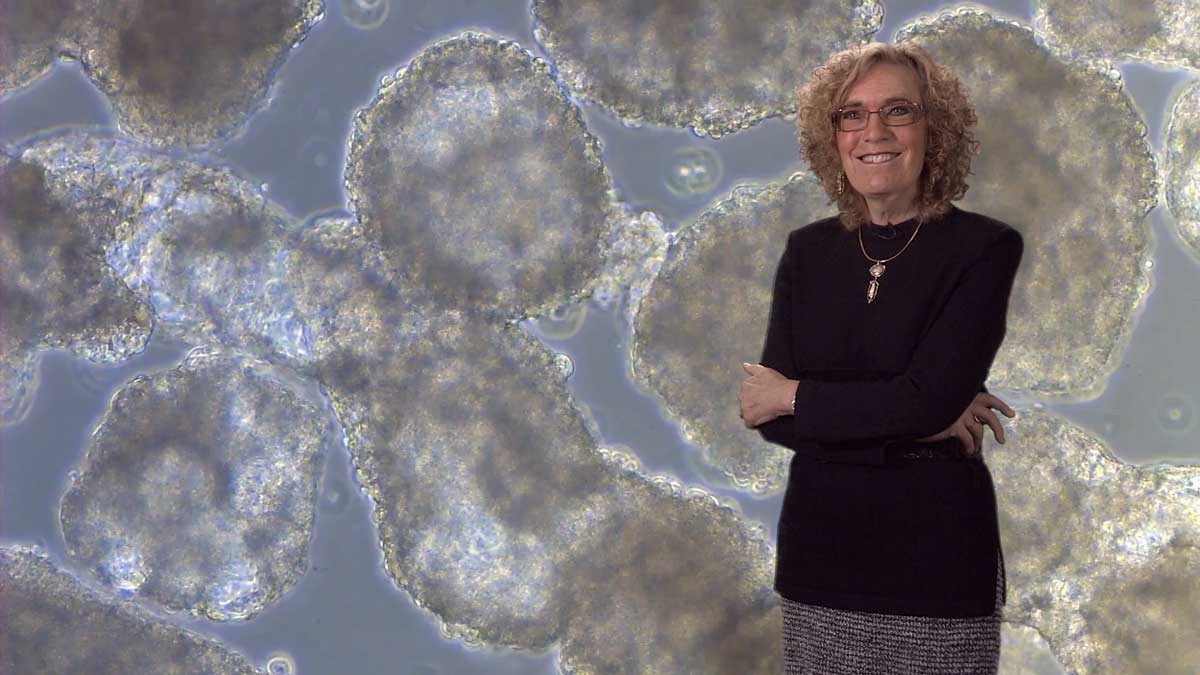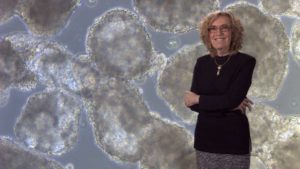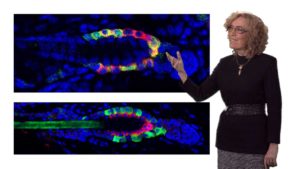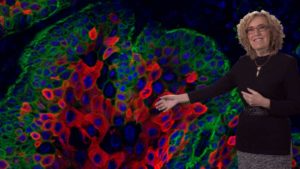Skin Stem Cells: Their Biology and Promise for Medicine
Skin stem cells have great potential for the treatment of burns and corneal injuries. As Elaine Fuchs explains, understanding skin stem cell biology is also key to understanding cancers such as squamous cell carcinoma.
With: Elaine Fuchs

| Title | Video | Concepts | Duration | Video Downloads | Transcript | PDF Resources (Educators Only) |
|---|---|---|---|---|---|---|
| Educator Resources for this talk: Download Teaching Tools for this Talk: Part 1 | Part 2 (Educators only) | ||||||
| Skin Stem Cells: Their Biology and Promise for Regenerative Medicine | 
|
History of stem cells, embryonic stem cell (ESC) culture, generating induced pluripotent stem cells (iPSCs) from adult somatic cells | 44:20 |
Hi-Res Low-Res Subtitled: |
View Transcript | |
| Tapping the Potential of Adult Stem Cells | 
|
Adult skin stem cells, hair follicle stem cells, transcriptional regulation in stem cells | 51:43 |
Hi-Res Low-Res Subtitled: |
View Transcript | |
| Cancer: Hijacking the Wound Repair Mechanisms Used by Stem Cells | 
|
Squamous cell carcinomas (SCCs), tumor microenvironment, SCCs development, progression, and regulation | 23:39 |
Hi-Res Low-Res Subtitled: |
View Transcript | |




